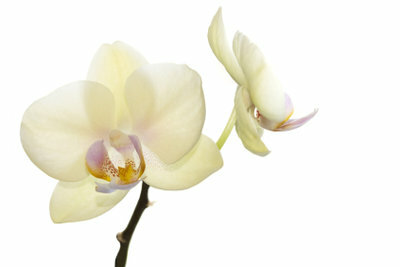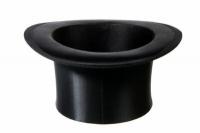Caring for hanging orchids properly
Orchids, whether standing or hanging, need your attention and care so that they bloom long and profusely and you can enjoy them.

Hanging orchids - demanding exotic species
- In the past, the exotic orchids in Europe were very special, very expensive, difficult to get and a real challenge in terms of care, as not too much is known about the plants in this country was.
- Today orchids can be bought in every flower shop and sometimes even in supermarkets and hardware stores. Today's cultivars are not quite as fragile as their ancestors from the rainforests, but still require more care than most other flowering plants. But they also delight orchid lovers with lush, long-lasting blooms and conjure up a touch of exoticism on every window sill.
- Orchids can be found today in countless cultivated varieties as standing or hanging plants. Each one has its own special charm.
- Anyone who buys orchids for the first time - whether as a hanging orchid or a standing plant - should consider a few things when buying them. Such as, for example, that the plant must not be "injured" or infested with pests and, moreover, not exposed to drafts or cold or has not been watered for a long time. Orchids are sensitive and usually do not survive such conditions - even with the best care at home. “Orchid beginners” should choose robust hybrids instead of pure species when choosing their plants. Crossbreeds forgive small initial care mistakes, such as a sub-optimal location or irregular watering intervals, even more easily than their pure-bred conspecifics.
Care instructions for beginners
- Orchids do not thrive in conventional potting soil. You need a special substrate called "orchid soil" which consists mainly of bark mulch. Orchids feed through their roots partly from the air and partly from the irrigation water. If the aerial roots are covered with soil, they will rot within a short time and the plant will perish. Every two to three years the orchid be repotted and supplied with fresh orchid soil.
- The right choice of location is also important for your orchids to thrive. These plants are generally sensitive to drafts. Depending on the species, the optimal temperature and the optimal lighting conditions are different. You should seek advice from the specialist store here. Most orchid species are generally grateful if they can stand in the shade of another plant in midsummer, when it is very hot and in full sunlight.
- Since orchids are very sensitive to too much moisture and rot quickly, you must also be very careful when watering. The most common mistake in orchid care - whether for hanging or standing plants - is overwatering. In order to have a better overview of the amount of water when watering, you should always take your orchids out of the planter. In this way, you can be sure that waterlogging does not form, which would initiate the putrefaction process. If you want to be absolutely sure, you can also put a thin layer of small pebbles in the planter. So the "feet" of your orchids are always dry.
- By nature, orchids are used to very low-nutrient foods. Constantly fertilizing your plants therefore harms you more than it is good for you. In addition, the roots are sensitive to salts and can die if overfertilized. As a rule of thumb, fertilize orchids only when they are growing, i.e. when a new leaf or flower comes along, and be very economical. Your orchids naturally take a break from growing. In these phases, fertilizing is harmful and does not promote plant growth.
Black orchid - instructions for proper care
Whether as a cut flower in bouquets or as a decoration in your own living room - a ...
If you take this advice to heart, you will surely enjoy your orchids!
How helpful do you find this article?



